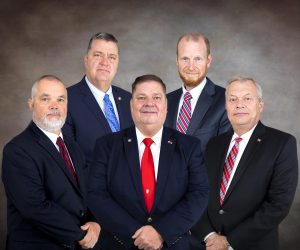 So the new real estate appraisals for Rutherford County were mailed out this week. If you have not seen yours yet be prepared for quite a shock. They have all increased dramatically with some even doubling in appraised valve.
So the new real estate appraisals for Rutherford County were mailed out this week. If you have not seen yours yet be prepared for quite a shock. They have all increased dramatically with some even doubling in appraised valve.
Why does this matter so much? Well the higher the appraisal the higher the county taxes you for your property. Many people here live on a low or fixed income and have difficulty meeting their monthly expenses as it is. The price of everything has gone up and now they must choose between possibly food, healthcare of their house.
Property values are decreasing around the country due to the recession and increased interest on loan rates. Property has been on a rapid rise but now it is dropping and expected to continue to drop.
 We do not live in an urban area nor do we live in an area where jobs are plentiful and well paying. Every dollar matters here and when something takes those dollars it has a serious effect on not only families but businesses that depend on them to spend there dollars with them.
We do not live in an urban area nor do we live in an area where jobs are plentiful and well paying. Every dollar matters here and when something takes those dollars it has a serious effect on not only families but businesses that depend on them to spend there dollars with them.
So, is there anything you can do? Well to start you can attend Commissioner’s meeting and speak out about this. You can demand that they stay revenue neutral. “Revenue Neutral” means that when your appraised value goes up the tax rate goes down to maintain the same amount of revenue for the county as the previous year.
 Also you can contact your County Commissioners via email or call 828-287-6060 and leave a message. The Rutherford County Tax Office has frequently asked questions about appraisals that you can see by clicking here. Their email address is assessor@rutherfordcountync.gov or call 828-287-6355.
Also you can contact your County Commissioners via email or call 828-287-6060 and leave a message. The Rutherford County Tax Office has frequently asked questions about appraisals that you can see by clicking here. Their email address is assessor@rutherfordcountync.gov or call 828-287-6355.
You may appeal the value of your house or land by writing your concerns to the Rutherford County Assessor, 125 W 3rd St., Rutherfordton, NC 28139. After they receive your request for appeal, an appraiser from their office will review your request.
 You may also file an Informal Appeal Form. (click here for link to form) If you wish to appeal the value of this notice, you must complete the form and return by mail postmarked within 30 days from the date of the notice you received, by mail or by fax. Rutherford County reappraisal personnel will review your assessed value based upon information provided on this form.
You may also file an Informal Appeal Form. (click here for link to form) If you wish to appeal the value of this notice, you must complete the form and return by mail postmarked within 30 days from the date of the notice you received, by mail or by fax. Rutherford County reappraisal personnel will review your assessed value based upon information provided on this form.
A change in value will be considered if the owner can demonstrate that the assessed value is not fair market value as of 01/01/2023 or is inconsistent with the value of similar property. Appeals will be reviewed in the order they are received. An appeal/review may result in the assessed value being: (1) unchanged, (2) reduced or (3) increased in value.
Please remember you MUST do this within thirty (30) days of receiving your new appraisal.

There are other recourses for property tax relief if you meet the criteria. They are listed below, click blue link for form:
 Form AV9 Application for Elderly Exclusion, Disabled Veteran Exclusion, or Circuit Breaker Deferment (ANNUAL application required for Circuit Breaker Deferment, all other exclusions are a one time application)
Form AV9 Application for Elderly Exclusion, Disabled Veteran Exclusion, or Circuit Breaker Deferment (ANNUAL application required for Circuit Breaker Deferment, all other exclusions are a one time application)
Form AV9A Certification of Disability
Form NCDVA9 Certification for Disabled Veterans
Applications for property tax exclusions or deferment deadline is JUNE 1st of each year.
Please be aware of deadlines and have your all your paperwork submitted as the deadlines are absolute.






